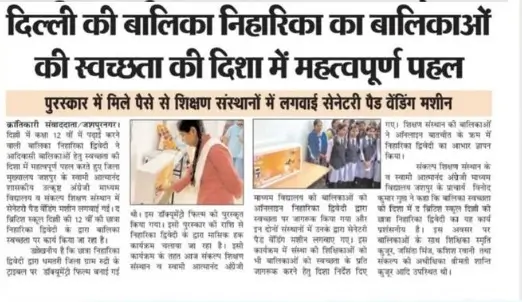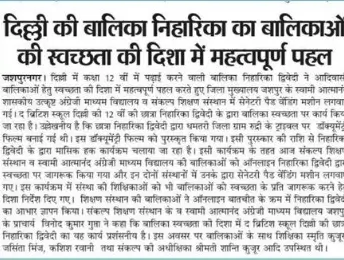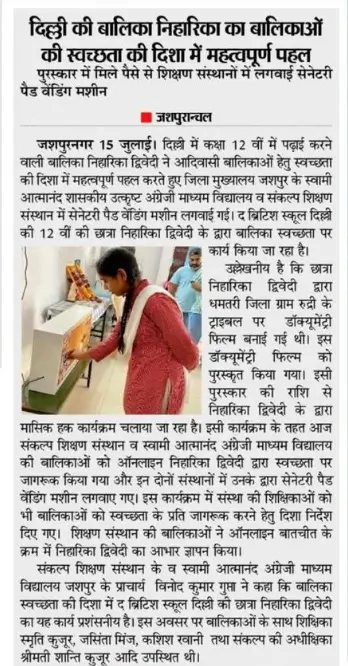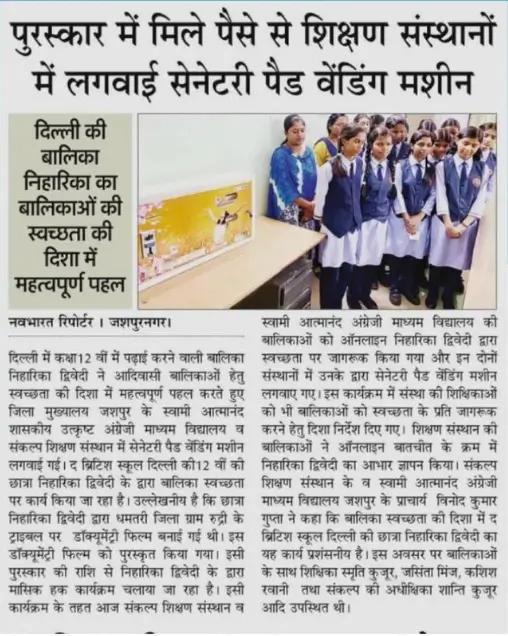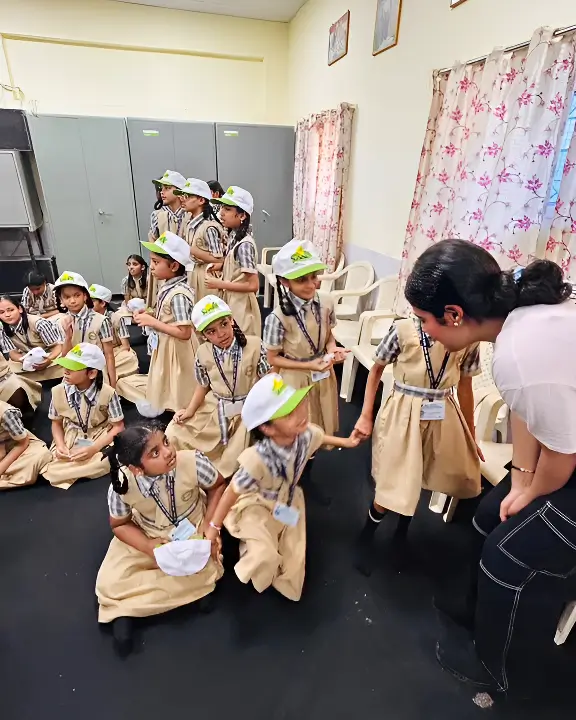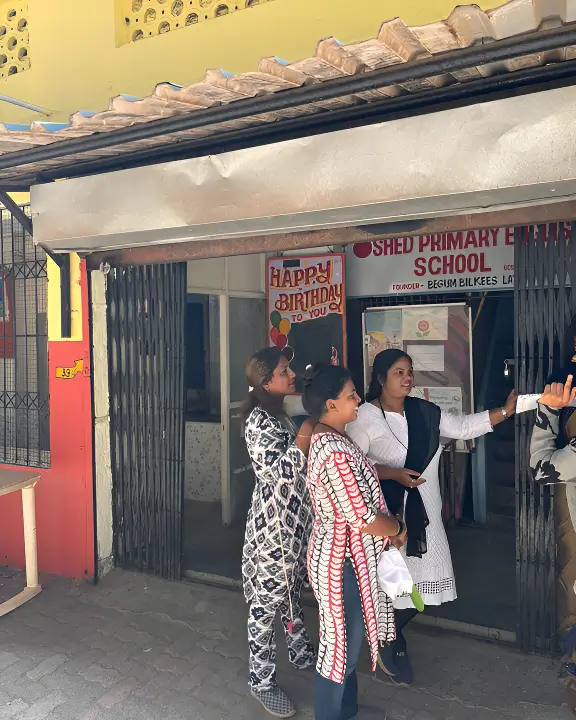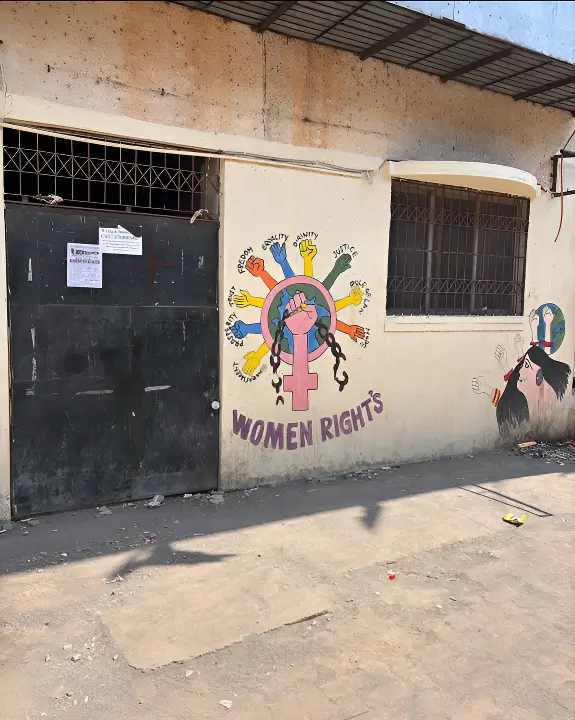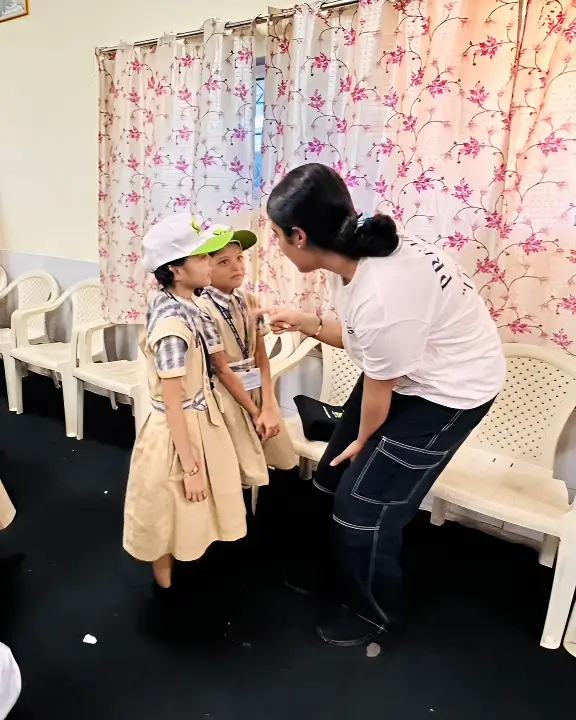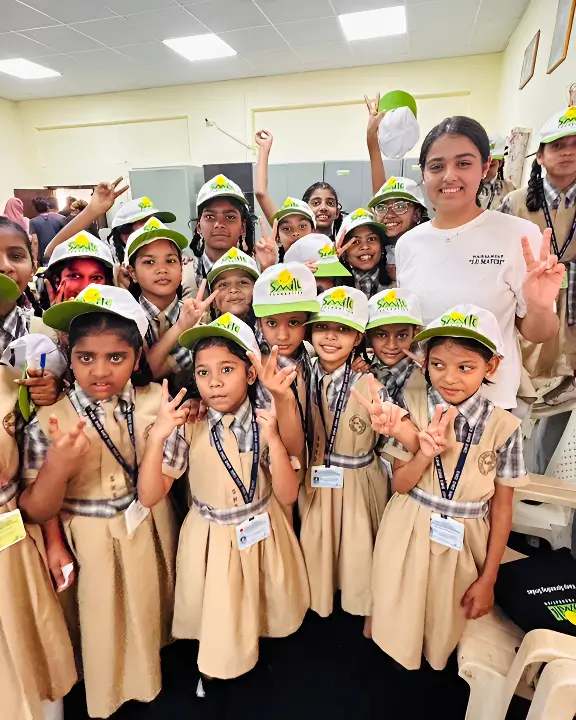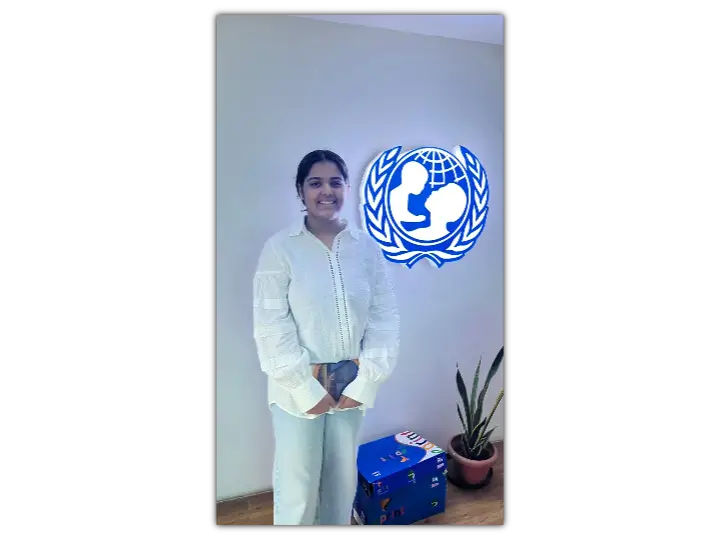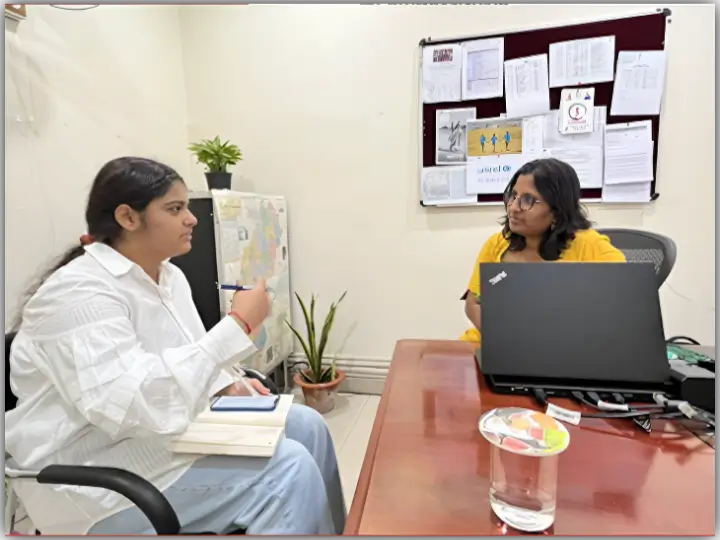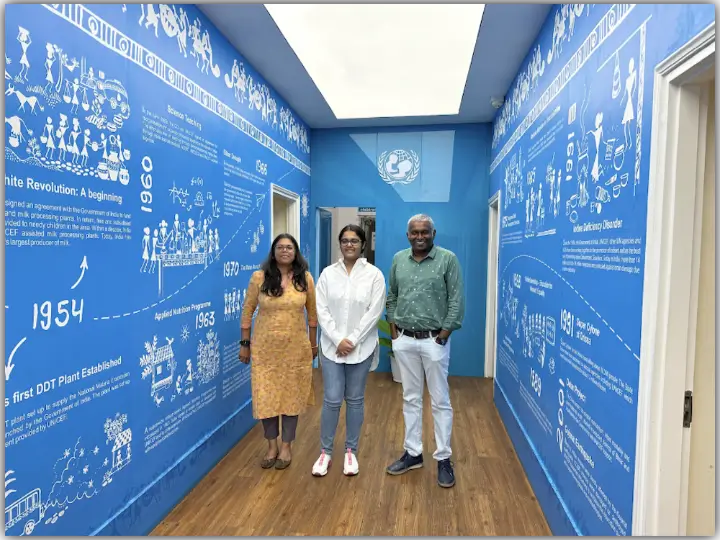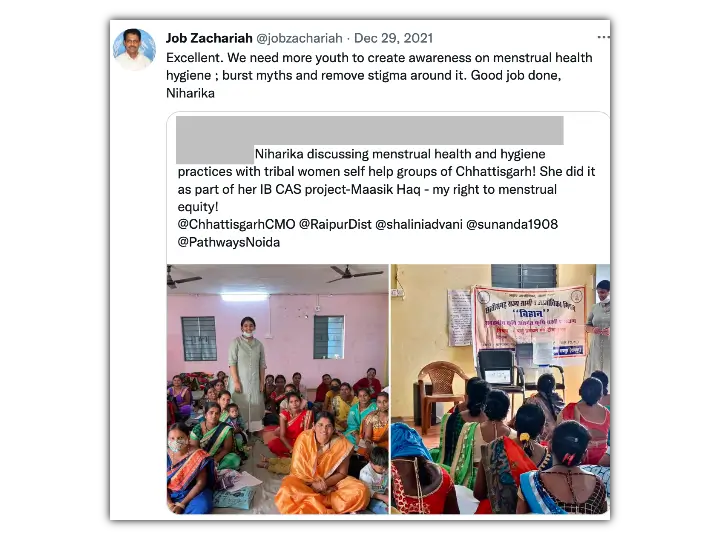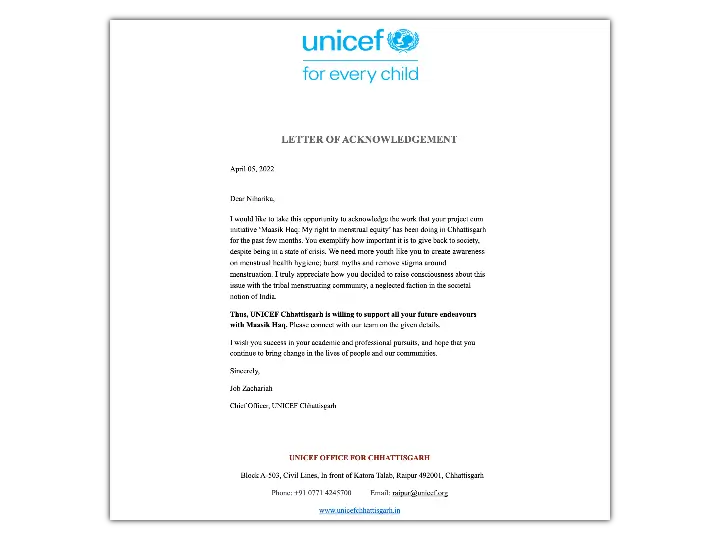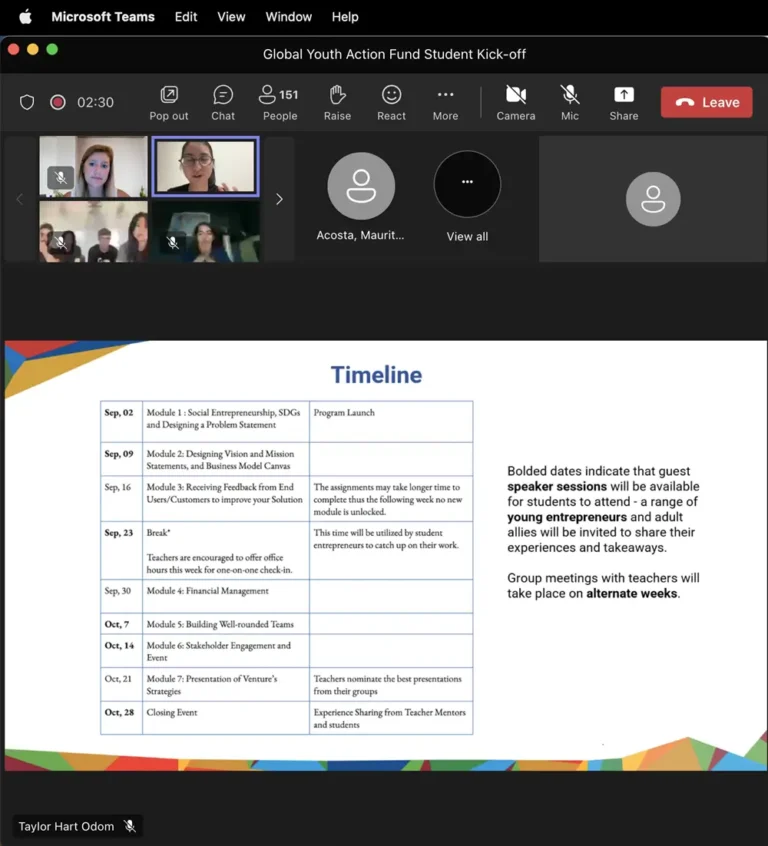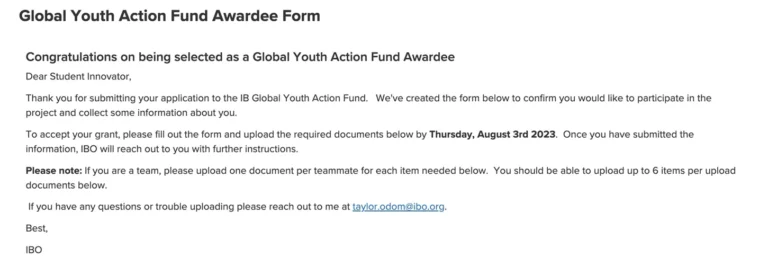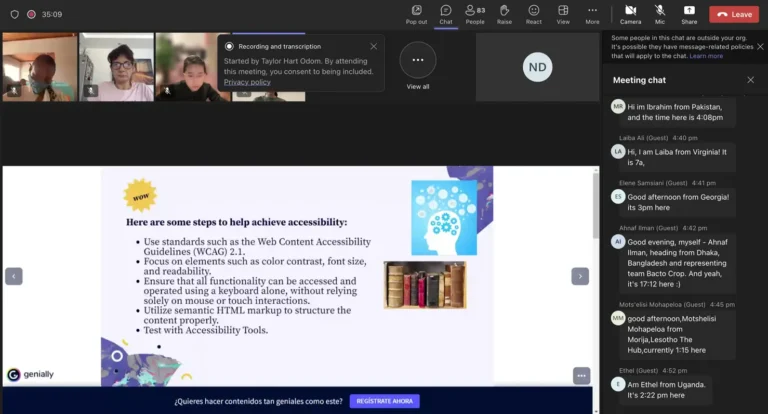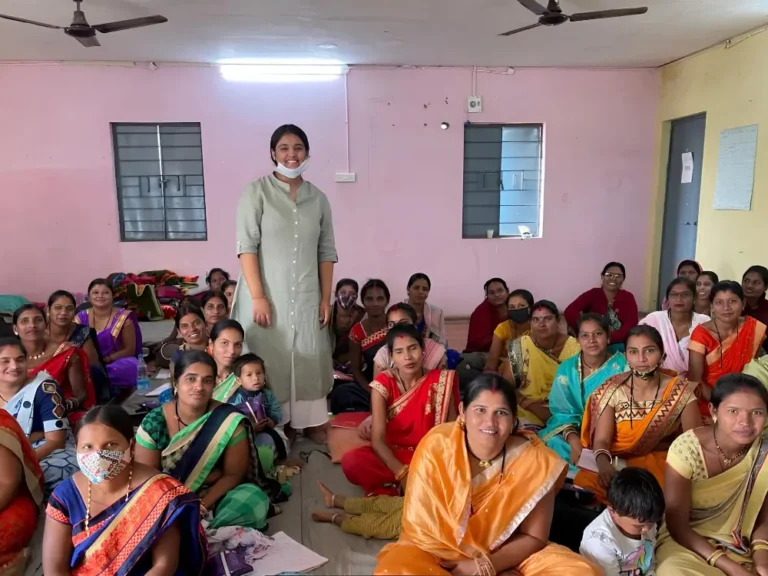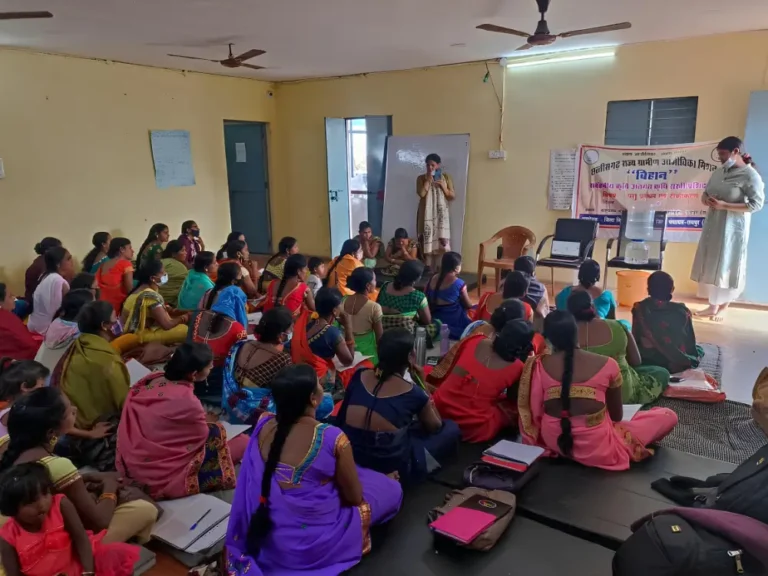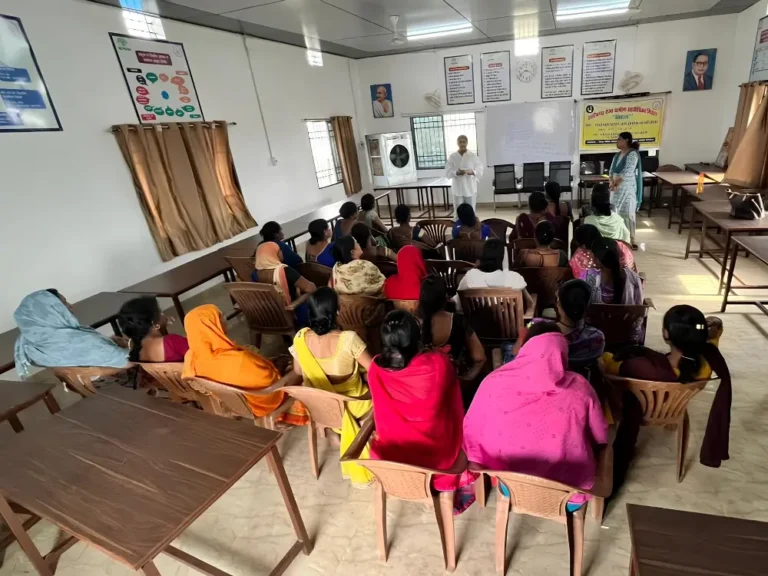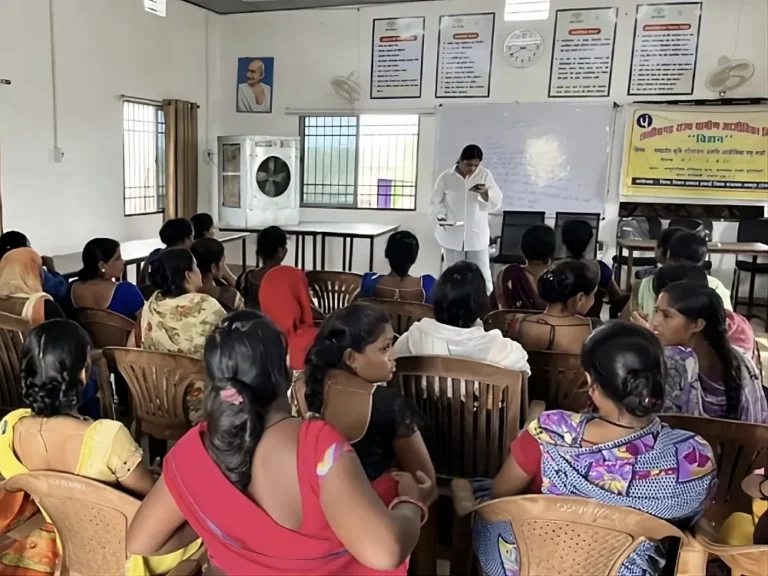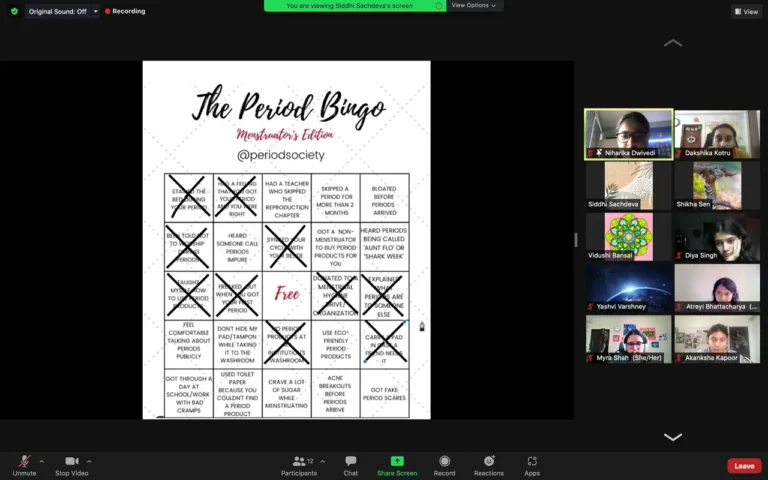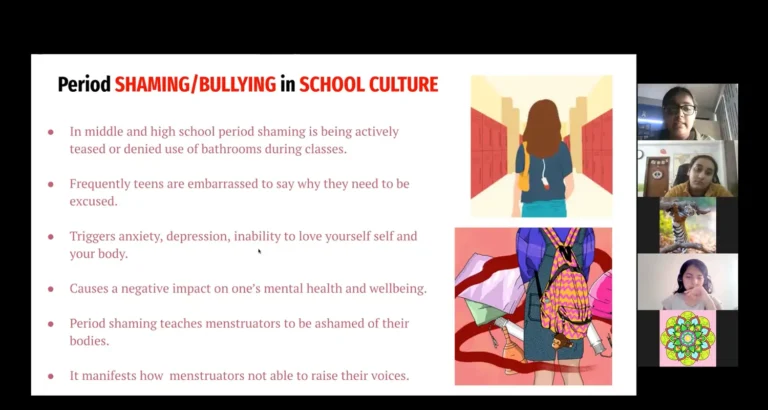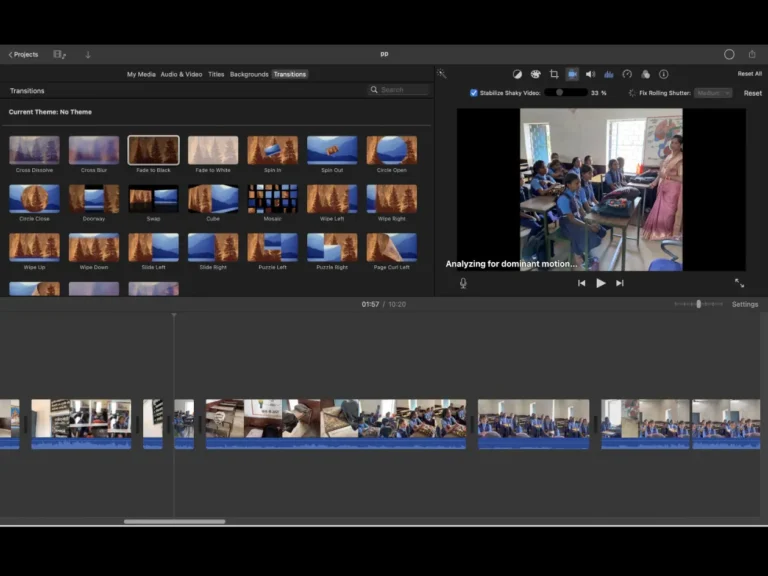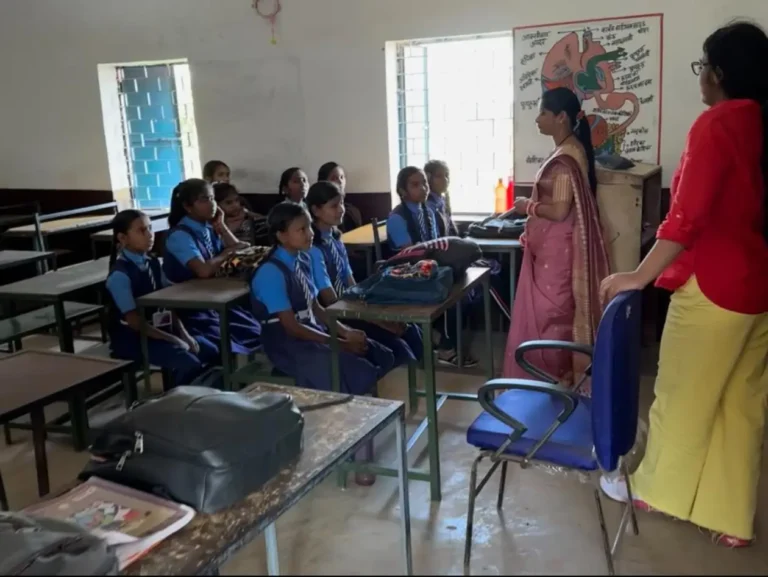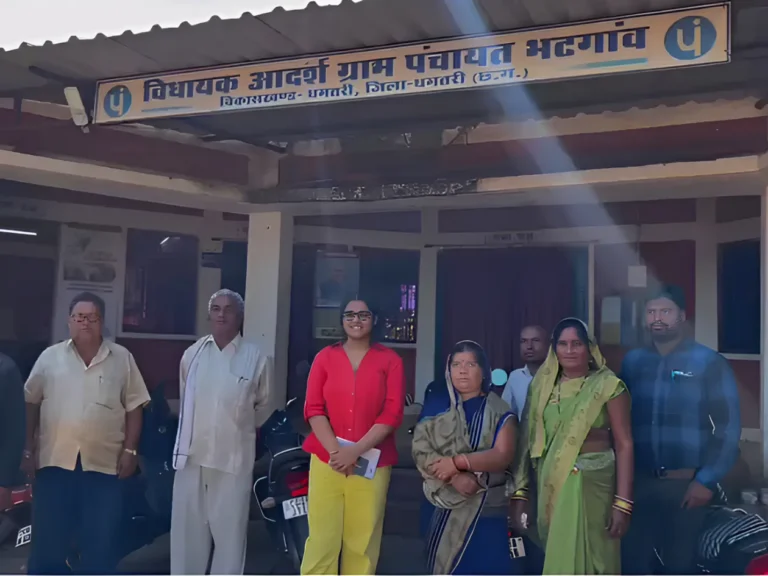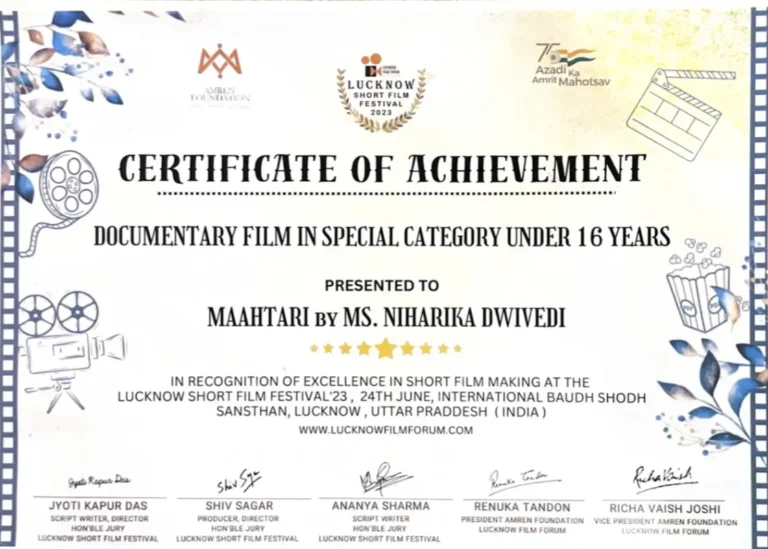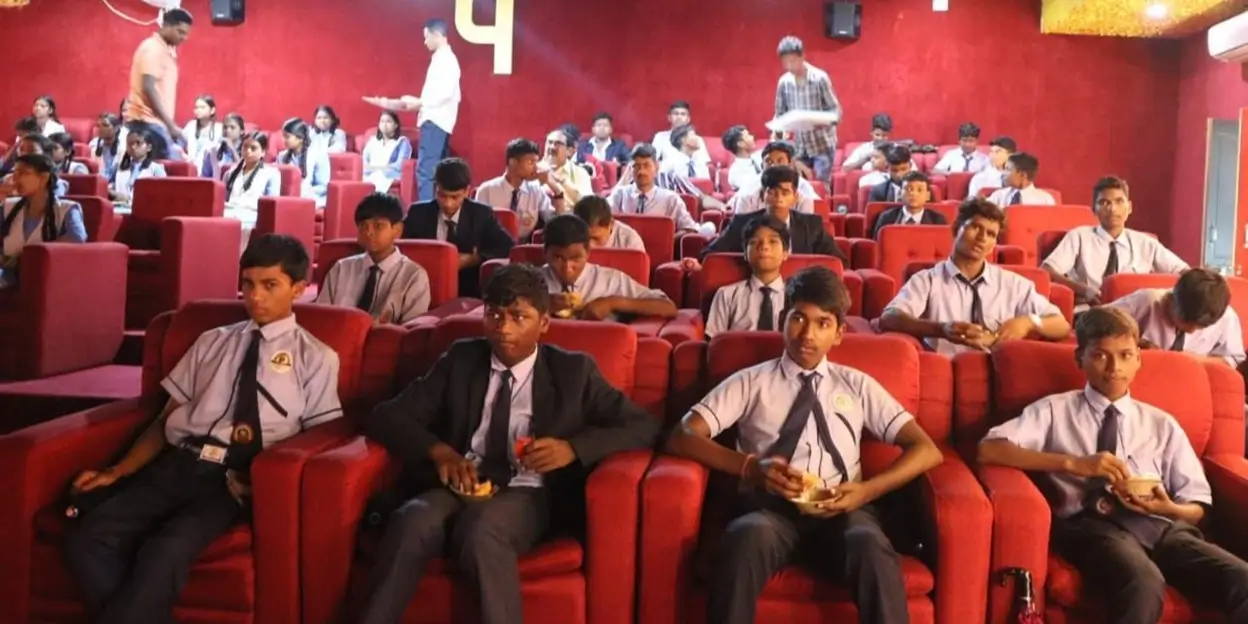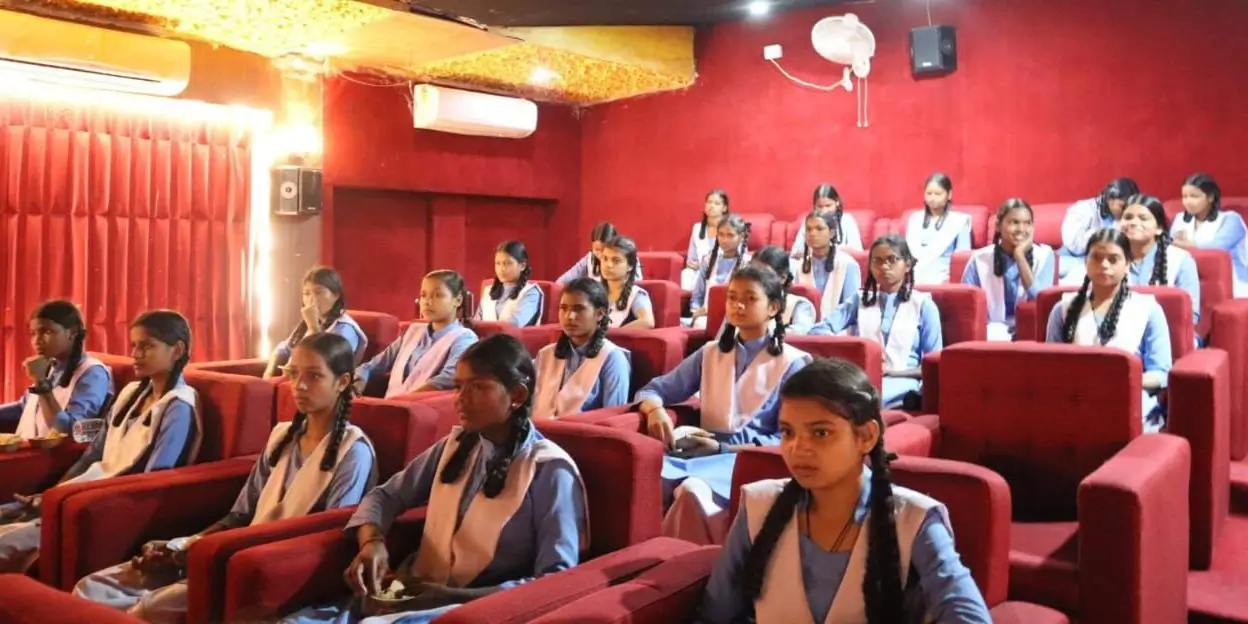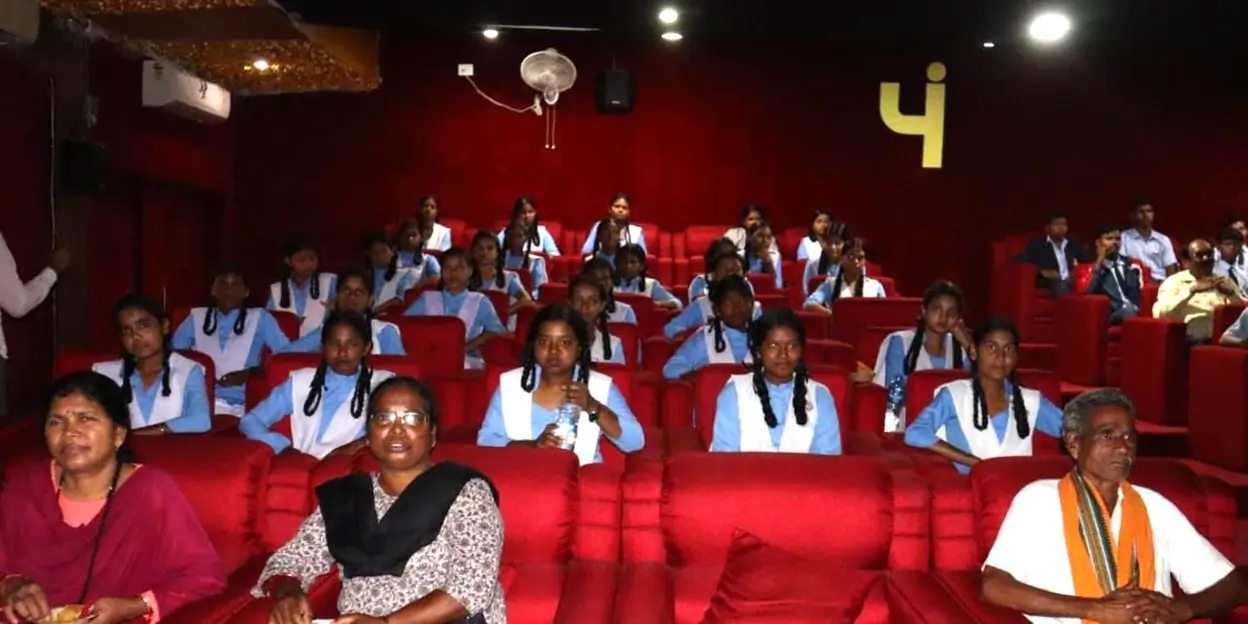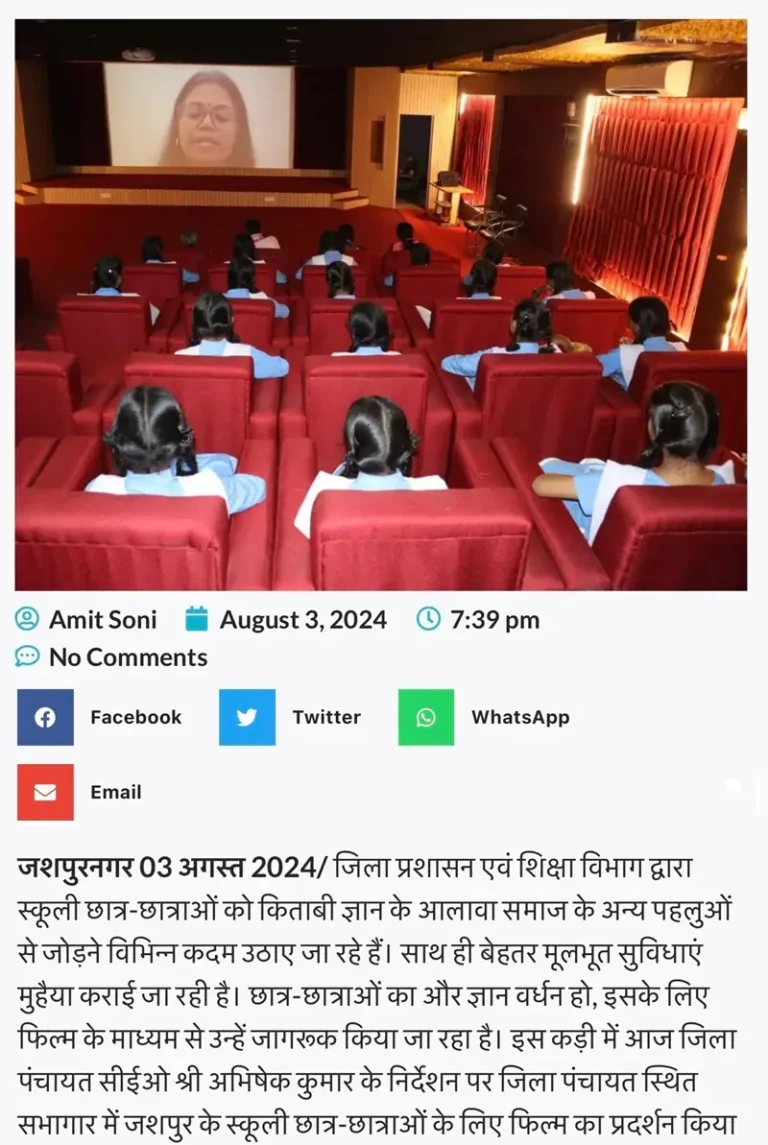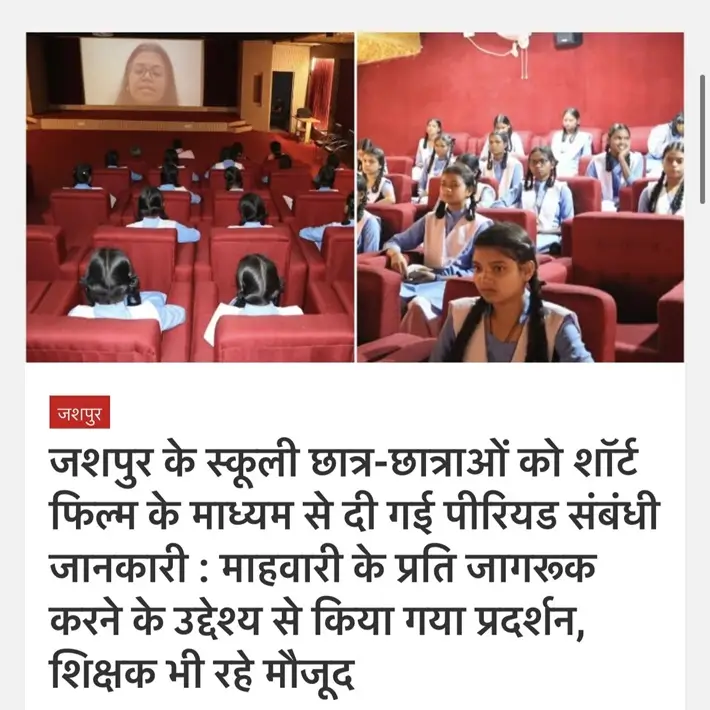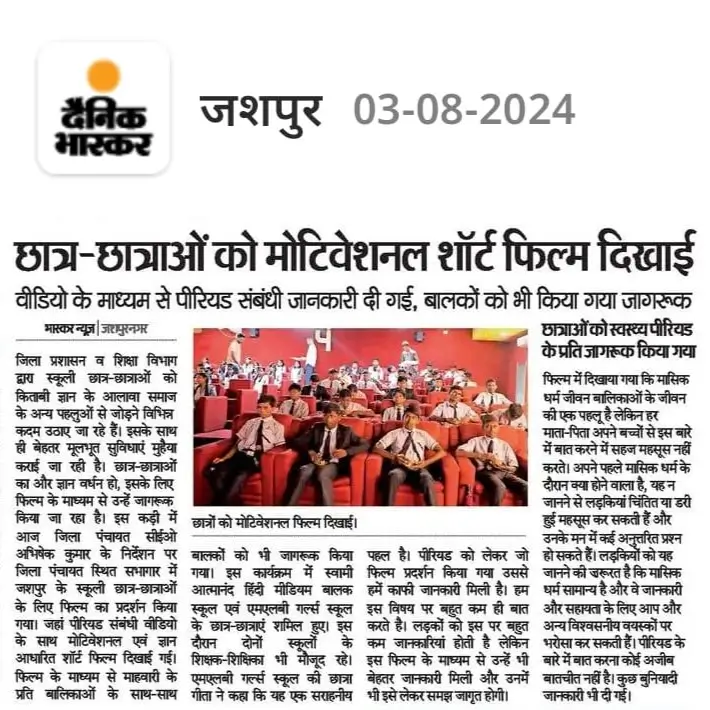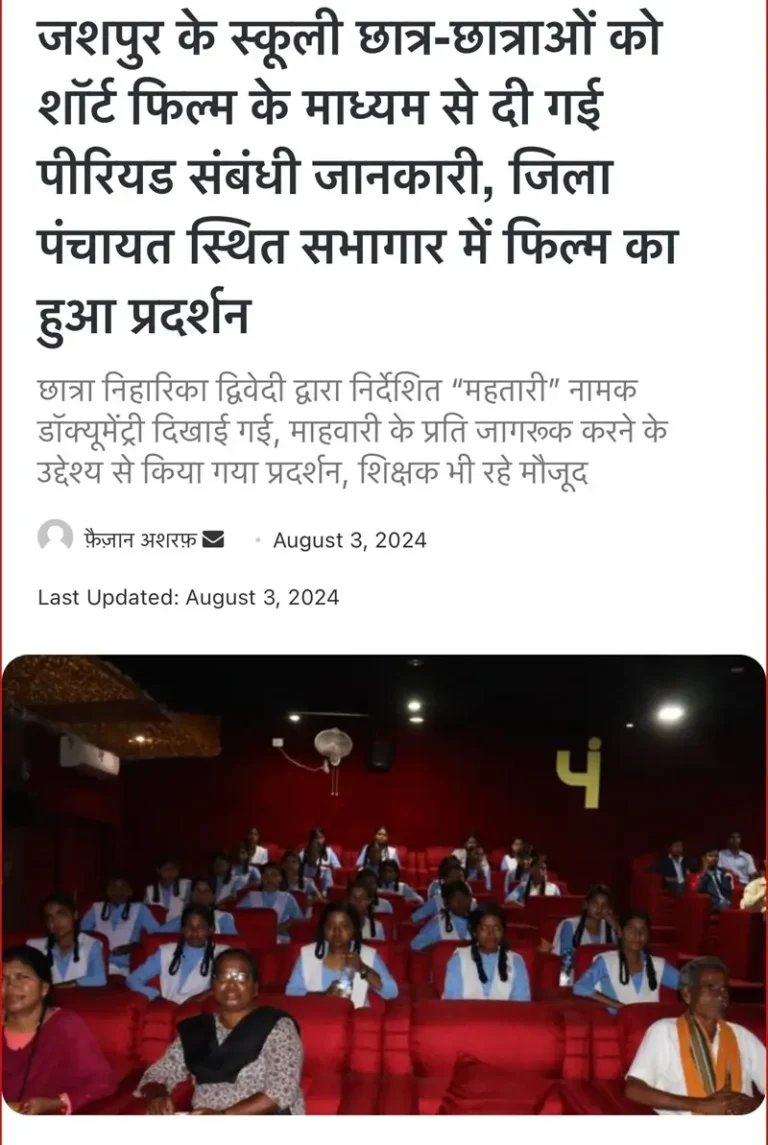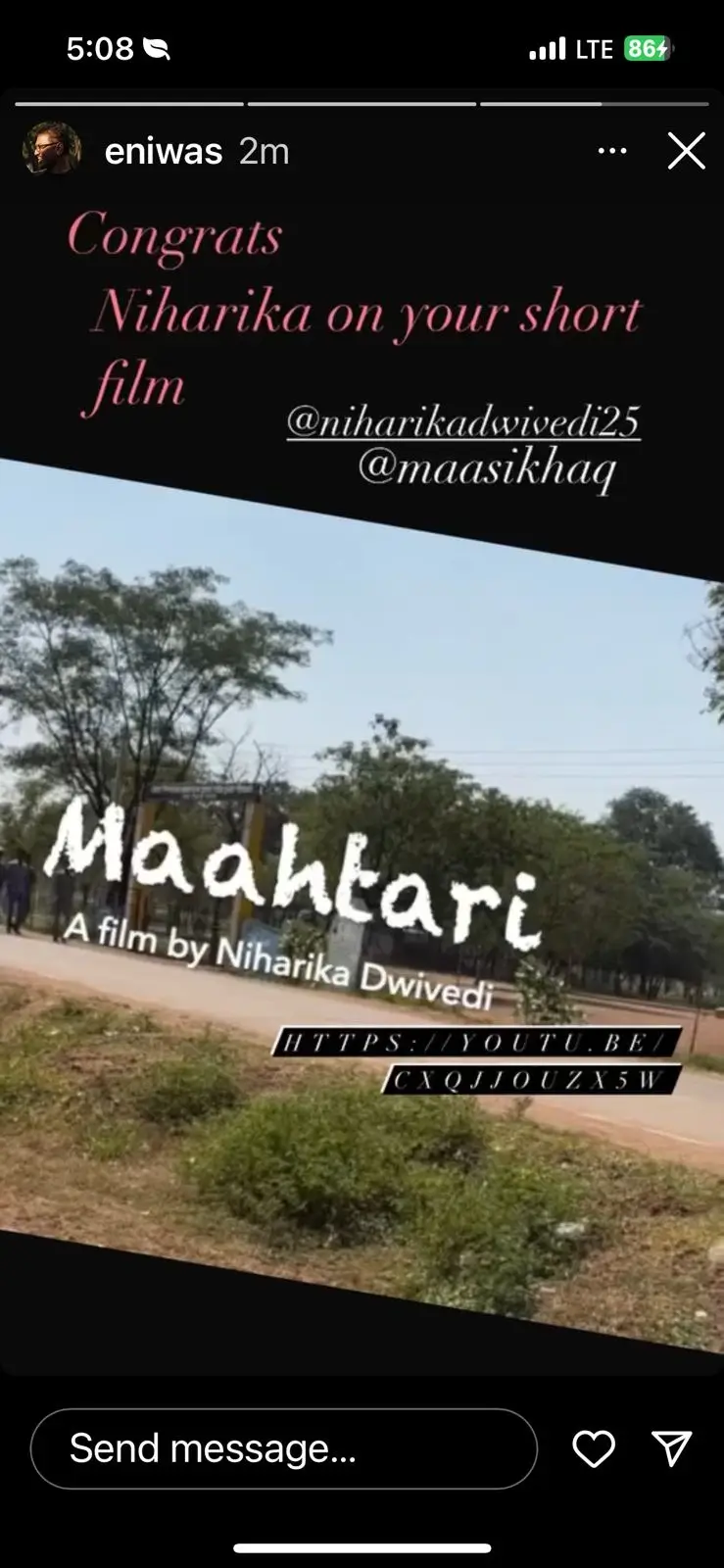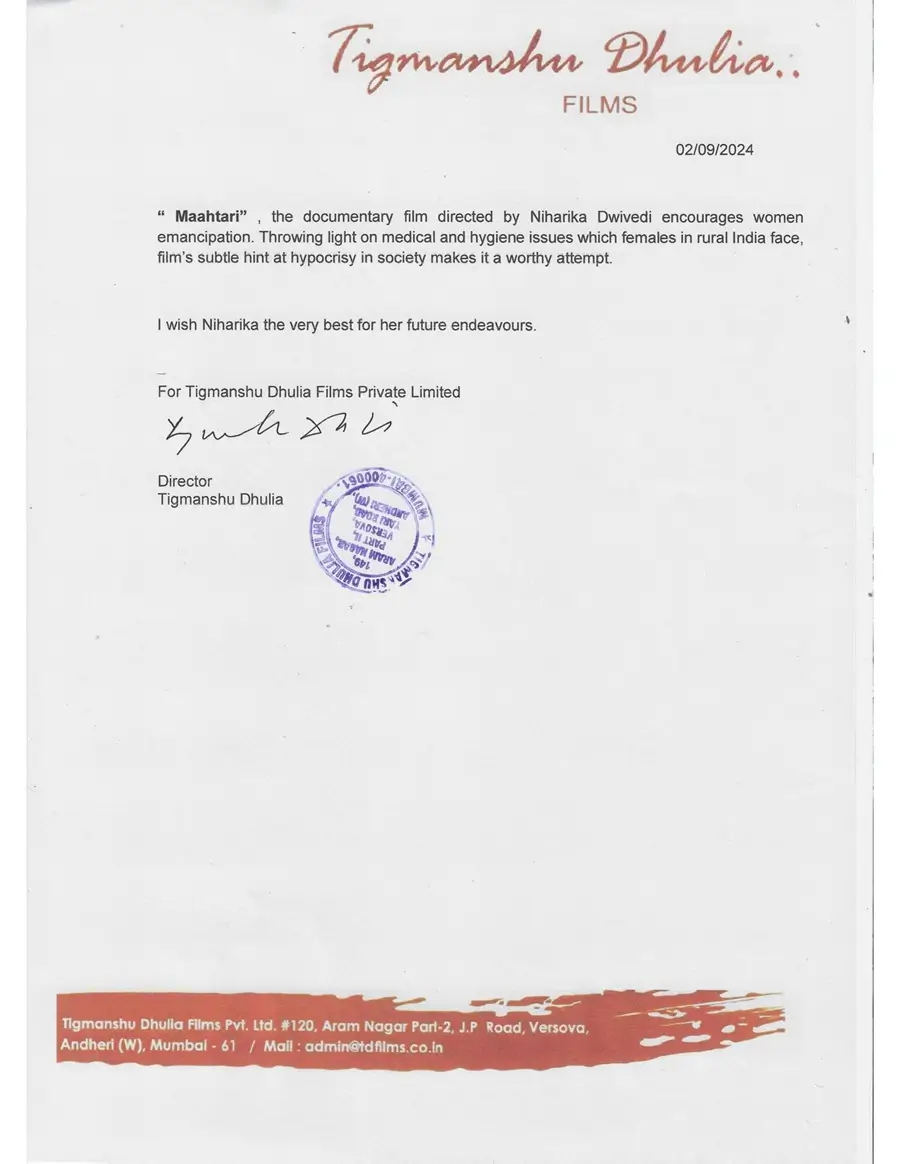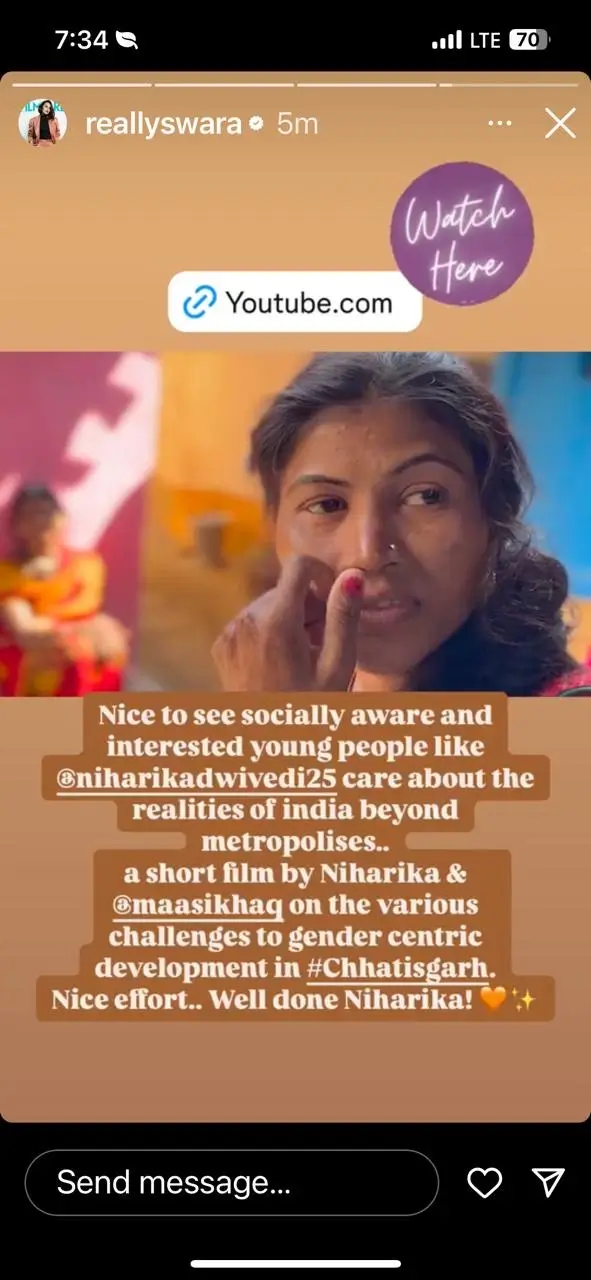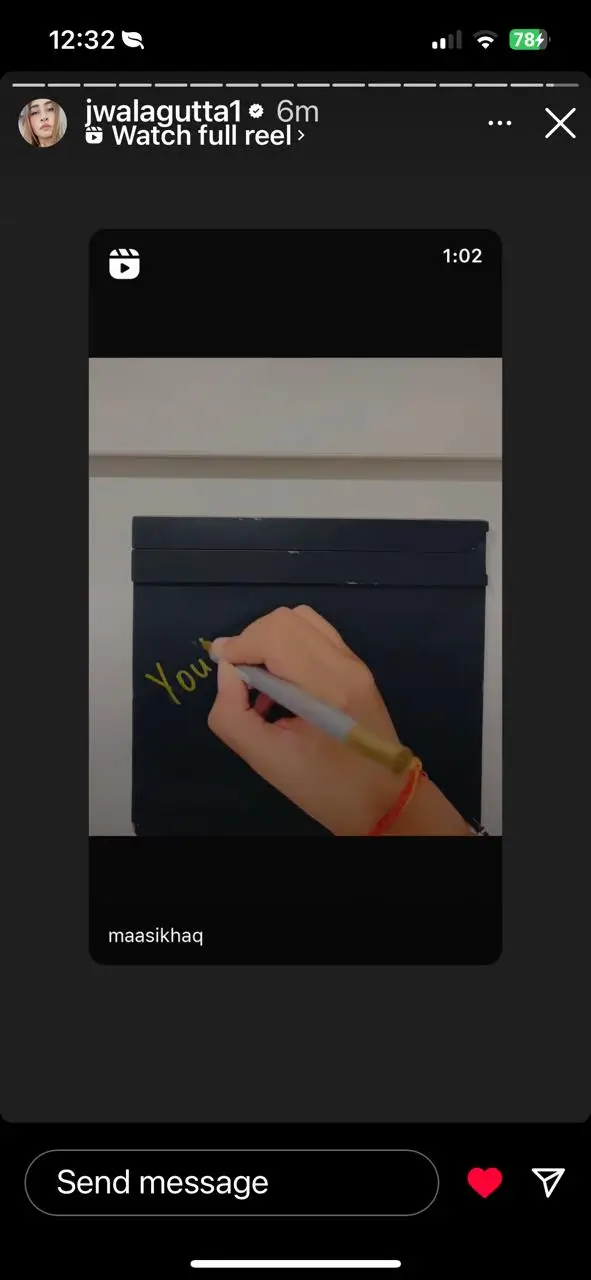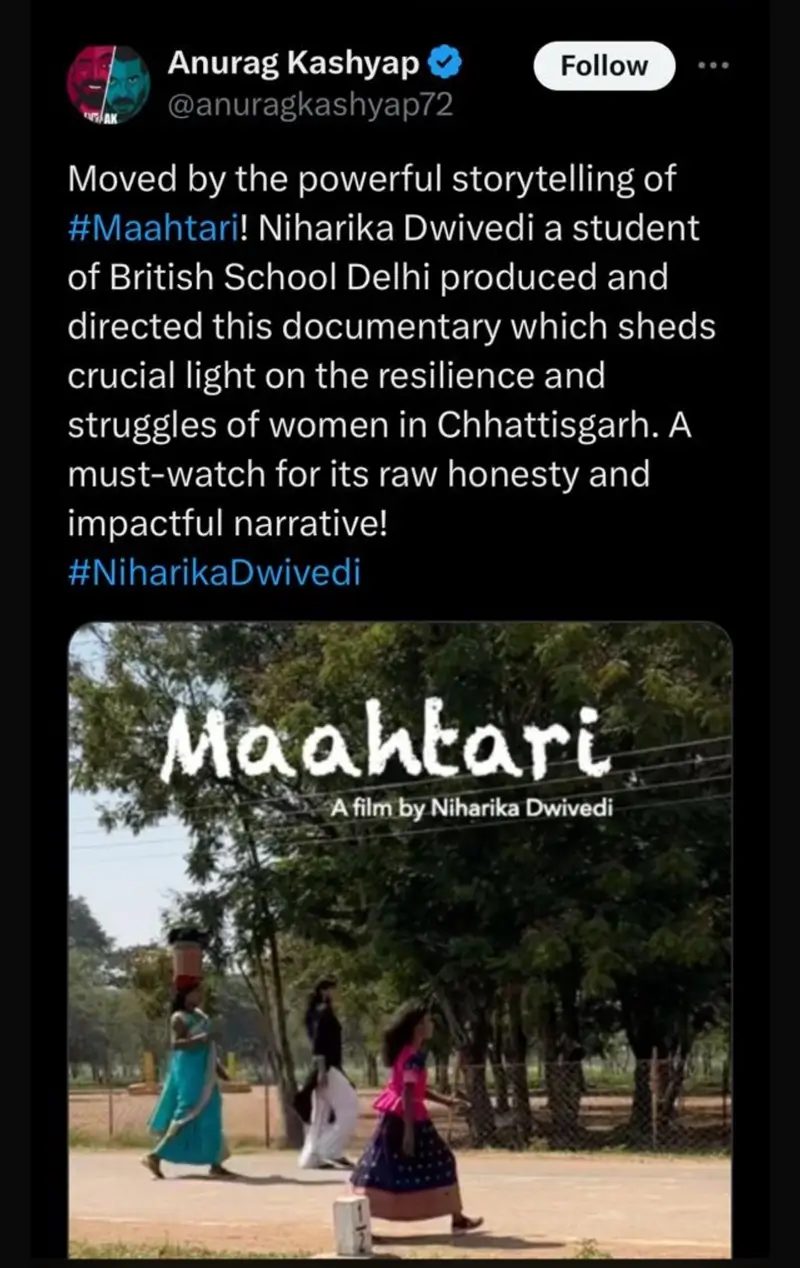Maasik Haq
Founded in 2021, Maasik Haq is an ongoing initiative that aims to destigmatize menstruation in tribal and rural communities whilst empowering tribal (and rural) women as a significant socio-economic faction in the Indian subcontinent. Funding from the International Baccalaureate Global Action Youth Fund enabled Niharika to conduct multiple sanitary napkin and other period products distribution drives to provide the women with the access to their fundamental rights of healthcare and sanitation. The initiative has worked consistently with UNICEF India (Chhattisgarh), Smile Foundation and MSMEs (medium & small & micro enterprises) in Chhattisgarh with their CSR agenda and has impacted tribal women to realise how natural of a process menstruation is in multiple tribal, naxalite areas, whilst participating in open-forum discussions about menstruation related taboos based on tribal culture. Niharika has reached a wider audience through directing and editing an awareness building documentary named, Maahtari, that showcased the stories and lives of the tribal women she had interacted with. Maahtari was also awarded the Best Short Documentary in Youth Category at FICCI Film Festival 2023.
Being a young woman who’s been brought up in a male dominated society, Niharika understands what the successful expansion of this initiative could do for the tribal women community in South Asia. It will not be just a global platform for representation but a space where the voices of an almost-unheard community will echo – about a subject that is vilified for too long.
Measurable impact includes:
- Received 2000 USD as an IBGYAF Awardee.
- Dharavi’s Shepherd Primary School: 80 students
- Interaction with Tribal Women in Rudri: 100 women
- Interaction with Tribal Women in Dhamtari: 95 women
- Interaction with Tribal Women Self Help Group in Sehri Kheda Raipur 120 women
- Tribal Students in Govt School in Jashpur: 100 students
- Installed 5 sanitary vending pad machines in Jashpur
- Interacted with over 600+ tribal women so far
- 5k+ views on Maahtari on Youtube
- Documented Stories of 100+ Tribal Women Self Help Groups in Maahtari
Installing 5 Sanitary Pad Vending Machine in Jashpur, Chhattisgarh
Niharika had the opportunity to install 4 sanitary pad vending machines at the Swami Atmanand Government School (SAGE), Jashpur and Sankalp Educational Institute. By providing easy access to sanitary pads, Maasik Haq aimed to empower these young girls, ensuring they could attend school without the disruption and embarrassment often caused by periods. Collaborating with local authorities, especially Jashpur District Magistrate – Dr Ravi Mittal, school staff (Kanya Chatravas), and healthcare professionals was crucial in identifying the best locations for the vending machines and ensuring a sustainable supply of sanitary pads. The installation process included using the funding received from the IB Global Action Youth Fund Grant, procuring and transporting the vending machines to the hostel and conducting workshops and educational sessions to inform the students about the proper use and maintenance of the machines.
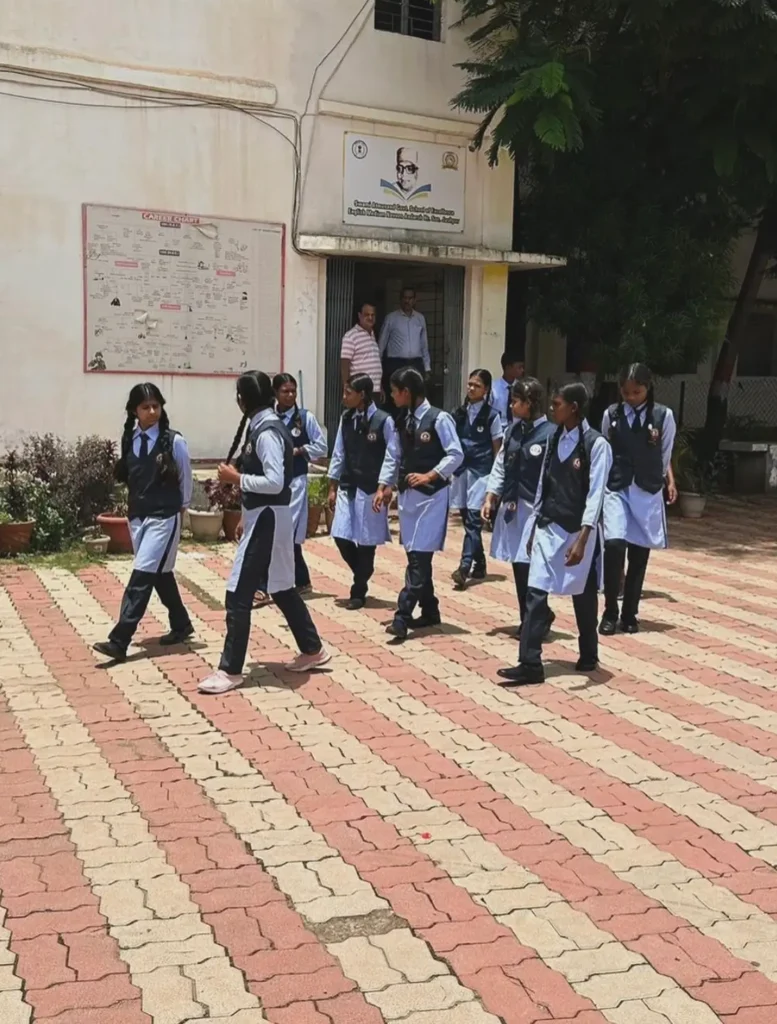
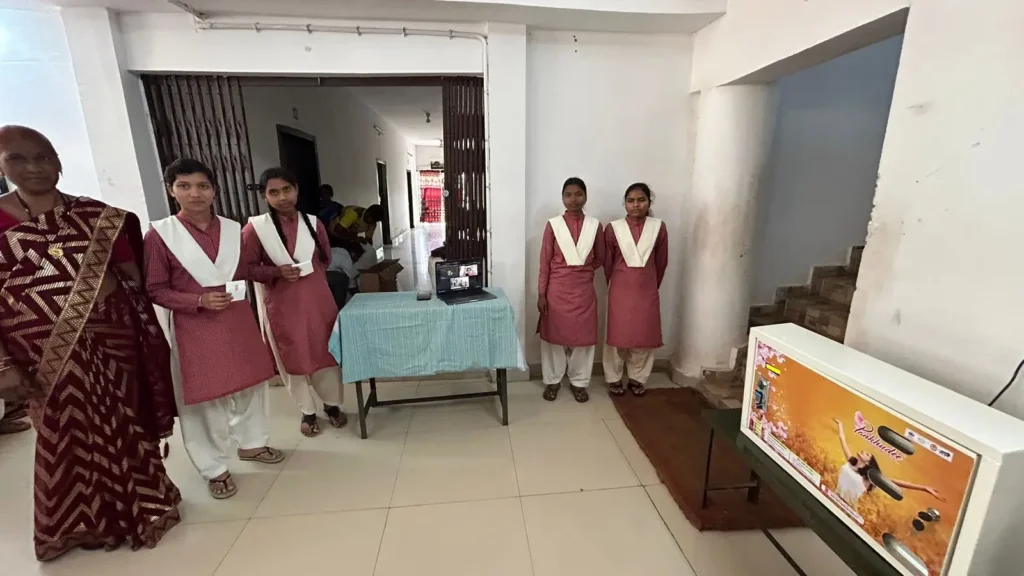
Through this, one would truly be able to witness the tangible improvements in the lives of over 1000 tribal schoolgirls in Jashpur which is not just an incredible rewarding experience but has also reinforced Niharika’s commitment to advocating for gender equality and health education.
This also gathered attention in local media, through newspapers, articles, highlighting the initiative as a step towards promoting menstrual hygiene and accessibility for young girls in underserved communities.
In Dharavi
In March 2024, Niharika had the incredible opportunity of interacting with young girls from Shed Primary and Secondary School at Dharavi, one of the world’s largest slums. The school recognized by Bombay Municipal Corporation (BMC) educates about 300 students from nursery to class X. In collaboration with Smile Foundation, the session educated the young girls about the importance of sanitation, hygiene and menstrual health; this composed of decoding what periods are precisely, the scientific study of why they occur, the various challenges (physical, psychological and emotional) associated with periods and how they can be overcome through strategies.
Collaboration with UNICEF Chhattisgarh
Conducting the very first session of Maasik Haq in 2021, Niharika interacted with a self-help group of 100 tribal women members in Rudri, in collaboration with UNICEF Chhattisgarh. Under the leadership of Job Zachariah, the Chief Officer of UNICEF Chhattisgarh, these sessions comprised of strategies to raise awareness like inclusion of audio-visual material in Hindi and local Chhattisgarh dialects to improve menstrual health education, and make menstrual hygiene products more accessible. With Sweta Patnaik, the WASH (Water, Sanitation, and Hygiene) Specialist at UNICEF Chhattisgarh, Niharika coordinated programs to install sanitary pad vending machines in schools, ensuring these vital resources were readily available to young girls. Ms Patnaik’s expertise in the WASH sector was instrumental in adapting solutions specifically for the needs of the region’s tribal communities. Additionally, Niharika worked alongside Sam Bandi, Communications Officer at UNICEF Chhattisgarh, to maximise the reach and visibility of the initiative. Through his guidance, Maasik Haq successfully engaged local media and community stakeholders, amplifying the project’s impact by fostering broader community support and engagement.
International Baccalaureate Global Action Youth Fund Awardee
Niharika has been awarded the IB Global Youth Action Fund for Maasik Haq in 2023. She was the first at Pathways School Noida to have ever won the award and a funding 2000 USD for the project as well as its future endeavours, which includes the development of a period positive home for the tribal women in Jashpur, Chhattisgarh. Maasik Haq was also amongst only 15 projects that were awarded in India. As a result of this, Niharika also interned with the International Baccalaureate and SDSN Youth as a part of the United Nations Sustainable Development Solutions Network Social Entrepreneurship Lab to develop multiple modules for the youth and learn key strategies to ameliorate as a changemaker in the 21st century.
Sensitization Sessions across Chhattisgarh: Raipur, Rudri, Dhamtari, Jashpur
Niharika has thus far conducted 15+ sensitisation sessions and workshops with tribal women and students across Chhattisgarh. These sessions discussed the importance of menstrual health and basic hygiene practices of changing sanitary pads from time to time, maintaining hygiene (washing hands regularly) and hydration- that the women were unenlightened about. The discussion then, often, extended to the taboos that surround periods in their village and tribal society. This was an interesting clash of perspectives where some women believed that cooking during menstruation could make food pale. However, others entirely dismissed it. For Niharika, this was a reflection of what the 21st-century Indian society, especially women, comprises when they brainstorm about the historical significance of cultural taboos and myths.
Maahtari
Directing and Editing Maahtari
Niharika believes that while it is salient to educate tribal women about menstruation, it is also significant for urban audiences to know about the lives of tribal women. Directing and editing Maahtari (mother in Chhattisgarhi, a local dialect) involved her in conducting recces in towns like Rudri and Dhamtari, understanding visual and cinematic techniques, interacting with the gram panchayats (village heads), contacting the administration of the state, listening to stories of various tribal women, and understanding with compassion to their challenges and obstacles. Gaining immense appreciation for the same, the documentary was screened at Pathways School Noida and was viewed by 500+ students and later the FICCI Film Festival in 2023, viewed by more than 1000+ of an audience. Maahtari was a means to bridge the gap between the urban and the rural.
Screening Maahtari for Tribal Students in Jashpur
Screening Maahtari, which focuses on the challenges faced by tribal women during menstruation, for government school students in Jashpur, Chhattisgarh, was a significant step towards raising awareness on menstrual health and de-stigmatization. The goal was to engage with these young students to spark discussions around menstrual health and break the silence surrounding this natural biological process.
With the support of the district magistrate and administration, 2-3 local theatres were hired and used to screen the documentary. It was encouraging to see students, both girls and boys, becoming more comfortable discussing these issues by the end of the screening, asking questions that indicated a desire to learn and understand more. This experience highlighted the ethical responsibility Niharika has as a filmmaker and an advocate for menstrual health. The screening was not just about presenting facts but also respecting the gender based and cultural sensitivities of the audience. It also inspired Niharika to continue creating content that addresses social issues, especially those that are often overlooked in rural and tribal communities. Moving forward, she aims to expand the reach of Maahtari to more remote areas and incorporate feedback from these screenings to create workshops and educational materials. I am also motivated to partner with NGOs and local organisations to amplify the impact of these initiatives and drive long-term change.
Screened at Alibaug Film Festival 2024
Having Maahtari screened at the Alibaug Film Festival and ultimately resulting as a finalist in the Short Documentary category was truly an incredible experience. The most fulfilling part of this project was knowing that Maahtari served as a platform itself for tribal women to express their experiences with dignity and agency. Niharika wanted the film to go beyond raising awareness —it was about creating a bridge between communities and advocating for change. This experience gave the documentary a wider audience, further amplifying these voices. It reaffirmed Niharika’s belief that the media can serve as a powerful tool for education and social justice, aligning perfectly with my long-term goals of supporting underrepresented communities.
Note: The documentary is a shortened version for enhanced clarity of purpose for the audience.
Recognition
Recently, Maahtari received special recognition from prominent personalities in the Indian arts and sports scene

E Niwas
National Film Award–winning director

Swara Bhaskar
Actress and Activist

Anurag Kashyap
National Film-award winning director and recipient of the Knight of the Order of Arts and Letters by Govt of France

Jwala Gutta
Arjuna Awardee and 2011 Badminton World Champion

Tigmanshu Dhulia
National Film Award–winning director
